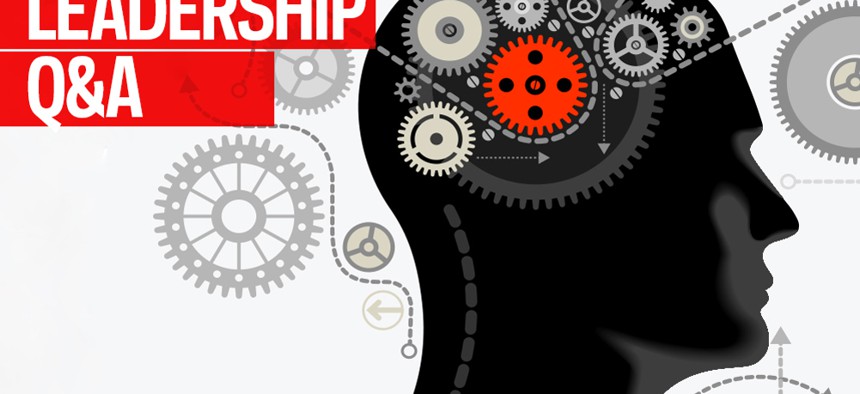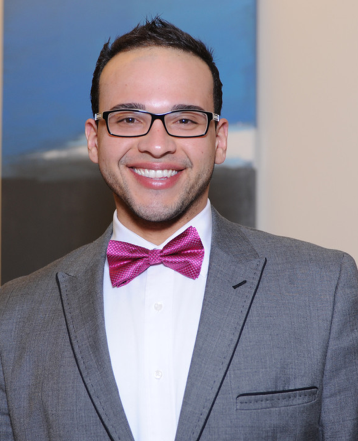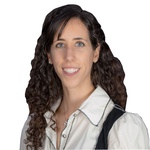
How I Lead: Supporting the Professional Growth of Others
A conversation with HR specialist Miguel Joey Aviles.
During the last seven years, Miguel Joey Aviles has supported the Department of Defense to implement high visibility employment initiatives and development programs with the mission of optimizing a highly capable and diverse workforce. He is the deputy program manager of the Defense Civilian Emerging Leader Program, designed to develop the next generation of innovative leaders. Miguel also volunteers as a chief learning officer for Young Government Leaders, a nonprofit organization providing an authentic voice for aspiring government leaders.
What is the best leadership lesson you've learned?
Don’t be afraid to take the first step. I am originally from the island of Puerto Rico, and while I was attending school, I applied to an internship program through the Hispanic Association of Colleges and Universities’ Hispanic National Internship Program. After patiently waiting, I received an email informing applicants that 95 percent of the vacancies were already filled. Immediately after reading the email, I called my old manager to secure a job for the summer as restroom cleaner at the retirement home where I used to work. Soon after, I received a call from HACU notifying me that a manager from the Forest Service selected me for a summer internship. To be honest, the only word I understood was “selected,” because at that time my English was not very good. That was the moment of truth, when you have only two options: either face the challenge in front of you or run away. I did not know how to speak the language, nor did I have the money to travel. The first leadership lesson I learned was to not be afraid to take the first step toward your goals. The second leadership lesson was about confronting challenges. The 10 weeks I spent in D.C. taught me that every challenge holds your next promotion—face it. Every challenge contains a hidden treasure—find it. Every challenge has the power to make you a leader—embrace it.
How did you get to where you are today?

After successfully completing my first internship program, I returned to the University of Puerto Rico in Mayaguez to complete my last two years. At the time, the Department of Defense had a job opening through the Student Training and Academic Recruitment Program. I decided to apply, and everything else is history. I was hired into the federal government through the now extinct, Student Career Experience Program. For a year and a half I served as a recruiter student trainee GS-4. My job was to promote DOD as the employer of choice. I had a radio program, participated in several career fairs and assisted my peers in developing their first federal resumes and applying to federal jobs through USAJOBS. After graduation, the Defense Civilian Personnel Advisory Service offered me a full-time job as a human resources specialist in recruitment, with the responsibility of managing the STAR Program. I worked at the Recruitment Assistance Division for over six years, and graduated from the Defense Civilian Emerging Leader Program. I recently accepted a career broadening experience in the Leadership, Learning and Development Division as the deputy program manager.
What strengths do you bring to your organization?
Diversity—the perspective of a bilingual Hispanic mixed with the standpoints of a millennial.
What is your weakness and how do you compensate for it?
As an emerging leader in the federal government, there are many areas I am still working on. For example, strategic thinking, conflict management, team building and problem solving are huge areas for growth. I believe training, developmental assignments and a good attitude are helping me acquire skills in those areas. I am also lucky to have great leaders and mentors who are always willing to provide their knowledge and guidance. At the beginning of my career, language barriers were very challenging at times. However, when communication turned into a wall, I dissipated it with a dose of genuine charisma.
What career accomplishment are you most proud of?
My most recent accomplishment was winning the Human Resource Leadership Award in the Washington, D.C., greater area for Excellence in Mentoring. The HRLAs were established in 2001 to honor HR executives for outstanding contributions to their organization and to the field of human resource management through organizational leadership, risk-taking, innovation, vision, mentoring, community service and ethics. The Mentoring Award recognizes an individual who demonstrates leadership, dedication and support to the professional growth and development of others, and I am honored to have received it.
Why did you win this award?
Very early in my life, I had to face many challenges and mentors played a vital role in my development. Those obstacles sparked my passion for mentoring. Today I am designing and will manage the development and maintenance of the first Department of Defense Mentoring Resource Portal as well as manage the Senior Executive Association & Young Government Leaders Mentoring Program.
The SEA & YGL Mentoring Program is a blend of formal and informal mentoring that provides a low-cost strategy to develop emerging leaders in the federal government by connecting successful senior executives at the pinnacle of their careers with high potential emerging leaders. The program combines networking events with learning and development initiatives and a community of practice providing the right tools to nurture business connections and turn them into successful mentoring relationships. I participated as a mentee during the pilot program and upon completion was selected as the first YGL chief learning officer. The first initiative I had to manage was the Mentoring Program, which we grew from 25 mentee applications to 150 spanning 33 federal agencies and resulting in the selection of 64 mentees.
Why do you think mentoring is important?
When I was 13 years old, my mom and I faced the most tumultuous experience of our lives. We were homeless. We lost our home, car, money, everything. Life as I knew it, changed in its entirety. On my 14 th birthday, my eighth-grade teacher had a surprise for me. Ms. Eduarda gave me a box of Jordan Almonds. Yes, a box of almonds. But what she said next carried a lot of power: “Miguel your personality, talents and gifts are many, just as the different colorful almonds in this box. Your life will be memorable and the world needs your leadership and contributions.” The actions of one propelled me to sturdily take ownership of my life, embrace my talents and go forward with confidence. Mentors do that through their guidance and support. In the workplace, mentoring has the potential to improve employee retention, engagement, recruitment, support diversity efforts, succession planning and knowledge management, among other important initiatives.
What is the most important thing you have learned in your career?
I learned that your people IQ will make or break you. Your ability to empathize, connect and influence people will help you achieve great things.
Tell me something your co-workers do not know about you.
As a preacher’s kid, I spent several years as a youth pastor when I was living in Puerto Rico.
What do you do after work for fun or to relax?
I really enjoy reading a good book in relaxing scenery. We recently built a deck on our house, so after work, I love to sit with my wife and enjoy the sunsets. Our schedules are usually pretty hectic, so when we do have the time, we like to take a step back to enjoy the precious things in life.
What is a good book you've read recently?
The Magic of Thinking Big is a great book to approach your career, life and goals with the correct mind-set.
What motivates you?
What really motivates me is helping others achieve their goals. More specifically, I truly enjoy helping emerging leaders to achieve their potential. I feel very passionately about the mission of the Defense Civilian Emerging Leader Program, which is to develop the next generation of leaders in the Department of Defense.







